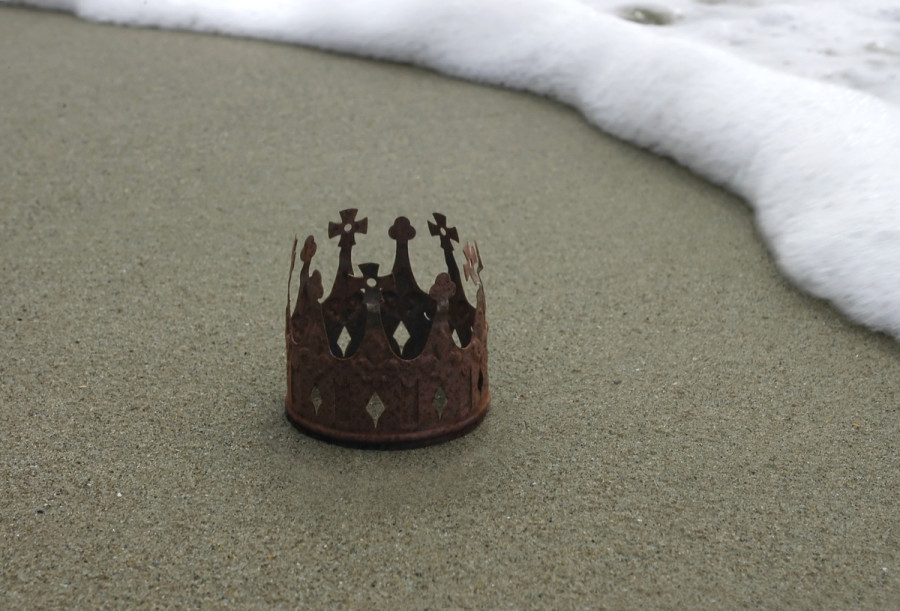Columns
Ghost of the crown
The risks associated with a return to the past far outweigh its touted, fictitious benefits.
Achyut Wagle
An English translation of a popular Nepali proverb reads: 'Even the river reverts to its old course in twelve years'. It's been exactly 12 years since Nepal became a republic in 2008 by abolishing the almost 240-year-old monarchical rule of the Shah dynasty. The republicanism was institutionalised by the 2015 constitution which also formally converted Nepal into a secular state and adopted federalism. Now, pro-monarchists are organising a series of nationwide protests demanding the restoration of monarchy along with a return to Hindu-nation status and an end to the federal system.
It has stirred the already muddled political atmosphere and triggered a new discourse, in the media and among the intelligentsia in particular, whether the monarchy should actually be restored. The monarchy reinstating itself anytime soon is far-fetched, for there may be only two possible routes to such a restoration—either through popular upheaval or constitutional amendment. Both routes are far more arduous than generally made out to be.
Few precedents
Even in world history, citable examples of such restorations are scarce. The only two that come to mind are the British and Spanish royals, which survive even today. Charles II of Great Britain and Ireland was forced into exile to France in 1651 by the 'commonwealth republic' leader Oliver Cromwell and was returned to the throne in 1660 after Cromwell died in 1658. This is known as the great 'restoration era' in English history (and literature).
The other fairly recent example is the return of Juan Carlos to the Spanish throne in 1975 after an interval of 44 years since the abolition of the monarchy in 1931 by the second republican movement. The military dictator Francisco Franco who ruled Spain from 1939 to 1975 signed a decree in 1969 enabling Juan Carlos, the son of the deposed Alfonso XIII, to succeed him posthumously. Carlos immediately installed himself as a constitutional monarch by amending the constitution through a referendum.
But Nepal barely has political ground prepared for the king to return to his deposed throne. First, the idea of monarchy itself is outdated and regressive. Also, there is no Nepali version of Franco in sight to install the king back in power. Further, the image of a potential benevolent ruler would have been critical in accelerating the process. But this does not exist in Nepal’s case.
Both former king Gyanendra Shah and his son Paras are hopelessly unpopular. Shah dynasty is generally perceived to have stolen the future of Nepal by deliberately keeping her from the rest of the world in the entire 20th century when other states were particularly dedicated to lay the foundation for growth and development. Moreover, there is not any credible prognosis that monarchy that blatantly failed to deliver on its promises even when it had absolute powers could do any wonders to lift the country from the abyss of chronic underdevelopment and multi-faceted poverty.
Then why is the debate of restoring the monarchy suddenly being entertained? The primary reason is that the federal, republican democracy that Nepal has adopted not only remains far short of meeting people's expectations but the priority of the main political actors is mislaid. The most glaring example of gross indifference is presented by the ruling Nepal Communist Party itself. Despite its two-thirds majority in federal parliament, it is making the country hostage to bad governance—fueled by its incessant intra-party feud.
Barely functioning
The symbol of the republic, the president of the country, Bidya Devi Bhandari, is seen as behaving like a new-born emperor—with her political meddling and taste for luxury. Her role as the protector of the constitution and an impartial head of the state, for all practical purposes, has now taken a back seat to her preferred role of being a saviour of the ruling faction of Nepal Communist Party. Similarly, the federal government now appears unwilling to devolve power to subnational governments in a manner that matches the true spirit of the federal constitution. Provincial governments, therefore, are vocally critical to the centralist mentality of the federal government. Province 2, for example, is resorting to legal recourses to assert its federal rights. Municipal governments are lost in a haze.
Alternative political forces, including the main opposition Nepali Congress, too, have failed to assuage the people. They all, in essence, are seen to be tacitly colluding with the ruling party. A toothless opposition is an unbecoming phenomenon in a functional democracy.
There is growing desperation and disenchantment among the masses. People's trust deficit with the existing set of political parties and political leaders is at its height. This has been exacerbated by Covid-19 induced job and income losses, the mental stress and, on top of it all, the government's apathy to the situation. Worse, there is no credible alternative democratic force emerging, even in the distant horizon.
Therefore, it is not unnatural on the part of the royalists, who have tasted state-power and are trained masters in machinations, to try to exploit the sentiments of people by evoking even religious sensitivities. Some geopolitical encouragement to drop secularism in favour of a Hindu state is obviously surmisable. Nevertheless, in spite of Nepal now being enveloped by these politico-economic malaises, the restoration of the monarchy is certainly neither timely nor the ideal prescription to cure them. The risks associated with a return to the past far outweigh its returns. The best alternative to democracy is democracy itself; certainly not a new cycle of one-man rule by any name.




 11.12°C Kathmandu
11.12°C Kathmandu















